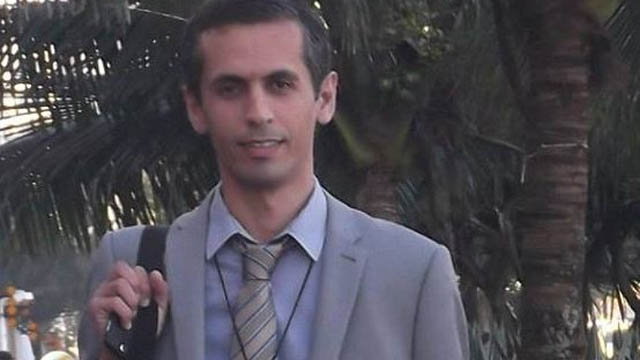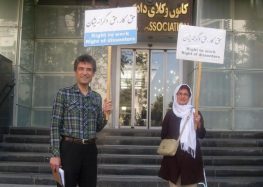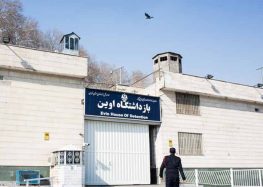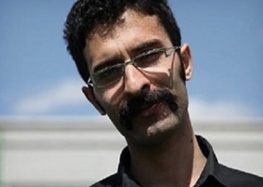Student Imprisoned For Refusing to Collaborate With Intelligence Ministry Denied Medical Care

Political prisoner Hamid Babaei is being refused hospital treatment by the authorities of Rajaee Shahr Prison in Karaj, west of Tehran, an informed source told the Center for Human Rights in Iran (CHRI).
“Hamid’s chest pains started two weeks ago for unknown reasons,” the source told CHRI on May 5, 2017. “The prison clinic prescribed pain killers and told him he would be dispatched to a hospital if his condition worsens, but he’s really suffering. They haven’t even checked his blood pressure or measured his heart beat.”
Political prisoners in Iran are singled out for harsh treatment, which often includes denial of medical care.
Babaei has consistently argued that he was imprisoned for refusing to operate as an informant for Iran’s Intelligence Ministry while he was in Belgium completing his PhD as a foreign student.
During his first trial in Iran, he was represented by a court-appointed public defender that was mostly silent and did not offer any defense on behalf of his client, an informed source told CHRI in June 2016.
Babaei, 34, from the city of Takab in East Azerbaijan Province, received a bachelors degree in mathematics from Iran’s prominent Sharif University of Technology in 2006 and his masters degree with honors in industrial engineering from Iran’s University of Science and Industry in 2008.
He was pursuing a doctorate in finance at the University of Liège in Belgium when he was summoned to the Intelligence Ministry while visiting family in Iran on August 13, 2013.
Babaei was arrested the same day after he declined to cooperate with the ministry as a spy in Belgium, the source told CHRI.
On December 21, 2013, during a trial that lasted less than 10 minutes, Babaei was sentenced to six years in prison, with an additional four-year suspended term for “espionage and contact with enemy states” by Judge Mohammad Moghisseh of Branch 15 of the Revolutionary Court.
The sentence was upheld upon appeal and the Supreme Court turned down his request for a review.
Babaei remains in prison despite being eligible for parole based on Article 58 of Iran’s Islamic Penal Code, which allows the deciding judge to “issue the order of conditional release for convicts sentenced to more than ten years’ imprisonment after half the sentence is served, and in other cases after one-third of the sentence is served.”
Babaei has served more than half of his sentence.
In a letter to his wife, Kobra Parsajou, in March 2014, Babaei wrote: “I never thought when I entered the Intelligence Ministry it would be our last time together and the beginning of a bitter scenario for both of us. Neither of us deserved this grim affair… I wish we had never come back (to Iran from Belgium) to face this painful tragedy.”
Parsajou was put on trial in September 2014 for allegedly speaking about her husband’s case in interviews with foreign media and issued a six-month suspended prison sentence by a Revolutionary Court in Tehran.
In April 2014, the Washington, DC-based Committee of Concerned Scientists published a letter urging Supreme Leader Ali Khamenei to release Babaei.
“Mr. Babaei’s sudden arrest without clear public explanation, his prolonged detention, and his conviction without substantial evidence, suggests a troubling disregard of international standards of due process, fair trial and detention, as guaranteed in the Universal Declaration of Human Rights and the International Covenant on Civil and Political Rights, to which Iran is signatory,” said the letter.






